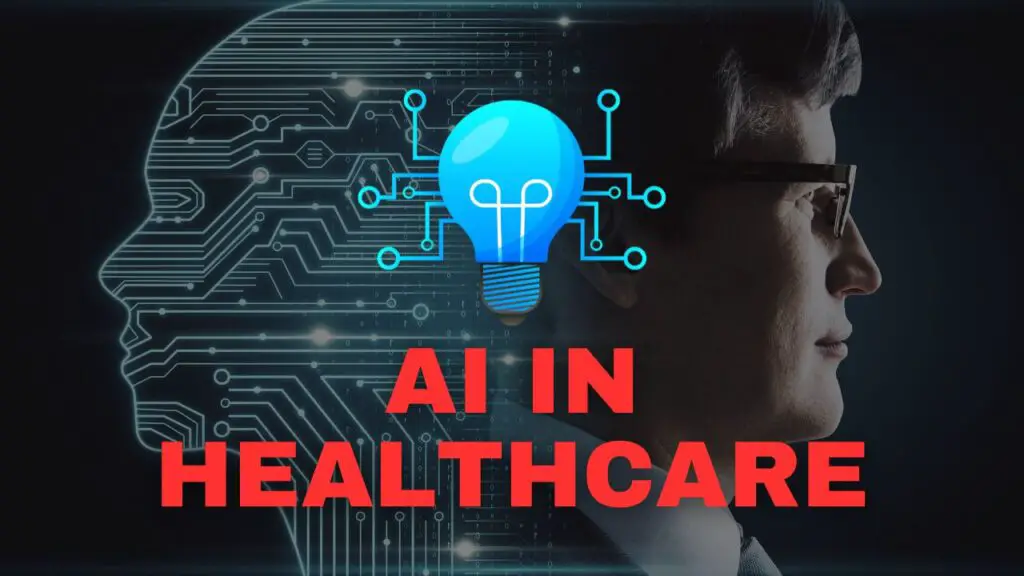Healthcare is a complex adaptive system characterized by constant change and uncertainty due to the complex nature of the human body. The emergence of Artificial Intelligence (AI) based technologies has helped us to enhance our cognitive abilities, so that healthcare delivery can be more efficient.
Considering hospital as one of the case samples, representing part of healthcare systems, we intend to showcase the potential areas in which Artificial Intelligence (AI) can be used. For ease of understanding, we classify hospital systems into OPD, IPD and other sections, which are well known by the common man and the health fraternity.
In case of OPD
A. Patient enrollment: The first step of treatment begins with the reception of the patient; this is how a healthcare system prepares for and welcomes its patients. Patient enrollment and allocation of the right doctor is one of the critical tasks, but at the same time it is handled by a limited number of competent staff. We recognize the importance of the right experience at this stage. However, healthcare systems are struggling to make it compatible with end user expectations. Artificial Intelligence (AI) has the power to streamline it into a contactless, end user driven experience and thus save resources and time for all stakeholders of the healthcare system. This has had an added benefit during pandemics or epidemics like COVID-19, where most hospitals are manually screening patients and attendees.
B. Symptom Identification, Trend Assessment and Prediction: Symptom identification in the industry is mostly visual, verbal or senses driven. There is a set of objective or subjective questions that are asked and evaluated, based on which symptoms are identified. Artificial Intelligence (AI) has the power to completely change this and thus enables doctors to provide additional/instructional information that can help doctors in the targeted next step. Doctors will find it easier to forecast and identify ongoing trends or upcoming trends.
C. Diagnostic and radiological recommendations: Based on the symptoms, trends, and prognosis, healthcare professionals suggest diagnostic confirmation by laboratory tests or radiological examinations. This is mostly based on the healthcare professional’s experience. Healthcare professionals use all the information available to them to suggest diagnostic tests, which are further evaluated based on objective and subjective standards. These protocols/standards are sometimes set by healthcare authorities or by the professionals’ own experiences. Artificial Intelligence (AI) has the power to leverage large data sets from around the world, learn from the experiences of doctors and other healthcare professionals, and help relatively new healthcare professionals with accurate predictions and test recommendations. It can also help the experienced healthcare professional with confirmation of diagnosis and confidence level information of the success of a given type of medication.
d. Telemedicine: This is now a commonly practiced approach to providing remote healthcare recommendations on minor issues. It refers to a practice of diagnosing and treating patients when the doctor and patient are not physically close to each other. This is especially useful for patients in remote locations. AI has a huge opportunity in this area and has the power to improve access to healthcare beyond the boundaries of distance and time. It also enables low-cost, effective primary healthcare delivery to beneficiaries in remote locations.
In Case Of IPD Patients
a) Health data monitoring and alerts: Monitoring health data of hospitalized patients is a critical task. These data often alert us about disease progression or effects of treatment. It is a frequent activity and consumes significant resources. The probability of errors is high due to the high frequency of the activity. Errors at this stage can have severe impact on patients. With the power of AI and digital, this activity considered routine and mundane can be digitized to optimize resource utilization and reduce errors. This provides an opportunity to save lives and raise alarm at the right time with complete objectivity without dependence on people.
b) Inpatient care: Caring for an inpatient is an activity that requires patience and a lot of care. Hygiene plays a very important role in preventing further complications and speedy recovery of the patient. Prevention of bedsores is crucial in treating the incoming patient, which is usually done by being very proactive in repositioning the patient and checking for bedsores. The monitoring and alarming capabilities of AI can enable the treatment center to detect early, fall risk, and emergency signals. Artificial Intelligence (AI) can also provide microclimate control and visitor control.
c) Surgical Treatment: For many diseases or patients’ conditions, surgery (invasive or non-invasive) is the ultimate treatment. Sometimes the position of the organ or tumor or any other factor can prevent the surgeon from seeing the clear anatomy of the surgical field. 3D tools powered by Artificial Intelligence (AI) are increasingly being used by surgeons to physically view the internal part of the patient and make better surgical plans. Robotic assisted surgery has led to less invasive surgeries, fewer surgery-related complications, less pain, and faster recovery times. However, healthcare professionals and authorities are still keeping an eye on this space due to the high cognitive requirements in this field. Independent serious surgeries are still very cautious and performed under strict and competent supervision.
Other Uses In Healthcare
a) Physiotherapy support and diet: Physiotherapy plays a vital role in the complete recovery of a patient. Although the main role of physiotherapy is seen in improving the mobility of the patient, it also helps in recovering the functions of other organs. Again, patient compliance is important in this aspect which has been seen to be lacking. Artificial Intelligence (AI) is widely used in this field for monitoring and timely recommendations. It can also be used to maintain compliance in the diet of the patient, which is very important in treatment and healing. AI can help in providing personalized diet to the patient especially upon discharge. This is an emerging space and there are a lot of healthcare providers who are utilizing these opportunities.
b) Patient record maintenance: Ideally adult patient records are maintained for 1 year for OPD patient and 3 years for IPD patients. These records are very important for the healthcare system. The institute/hospital faces many problems for proper maintenance of records. Although electronic health records (EHRs) are being used in many developed and developing countries, the problem still exists. Artificial Intelligence (AI) can help make EHRs more flexible, intelligent, and accurate. It can also help identify risk and response to treatment protocols, which can provide decision support when integrated with EHRs.
c) Healthcare Management: The current healthcare system focuses on treatment-based care, which cannot provide appropriate, timely low-cost interventions for healthy high-risk subjects. This pandemic has caused a huge economic burden worldwide. The introduction of Artificial Intelligence (AI) enabled personal health monitoring platforms in healthcare management systems has reduced the rising healthcare costs and improved healthcare.
Healthcare overutilization due to overdiagnosis is a growing problem due to improved sensitivity of medical screening methods. There are many instances where screening actually leads to overdiagnosis of disease, and the patient may not actually have the disease. The introduction of medical Artificial Intelligence (AI) technology in healthcare management systems can help identify unnecessary diagnosis and treatment. Therefore, medical AI technology not only focuses on the classical interactions between patients and healthcare providers, but the systems can also monitor health expenditures, cost recovery, and responses to treatments, thereby increasing population well-being and quality of care while reducing costs.
Read Also:
- Future Prospects Of Artificial Intelligence (AI) In Education
- Disadvantages of Artificial Intelligence (AI) in Education
- Why Google And Other Adsense Companies Not Gives Adsense Approval On Artificial Intelligence (AI) Written Content
- 50 Negative Effects Of Artificial Intelligence (AI) On Software Developers
- Impact Of Artificial Intelligence (AI) On Global Employment








Leave a Reply